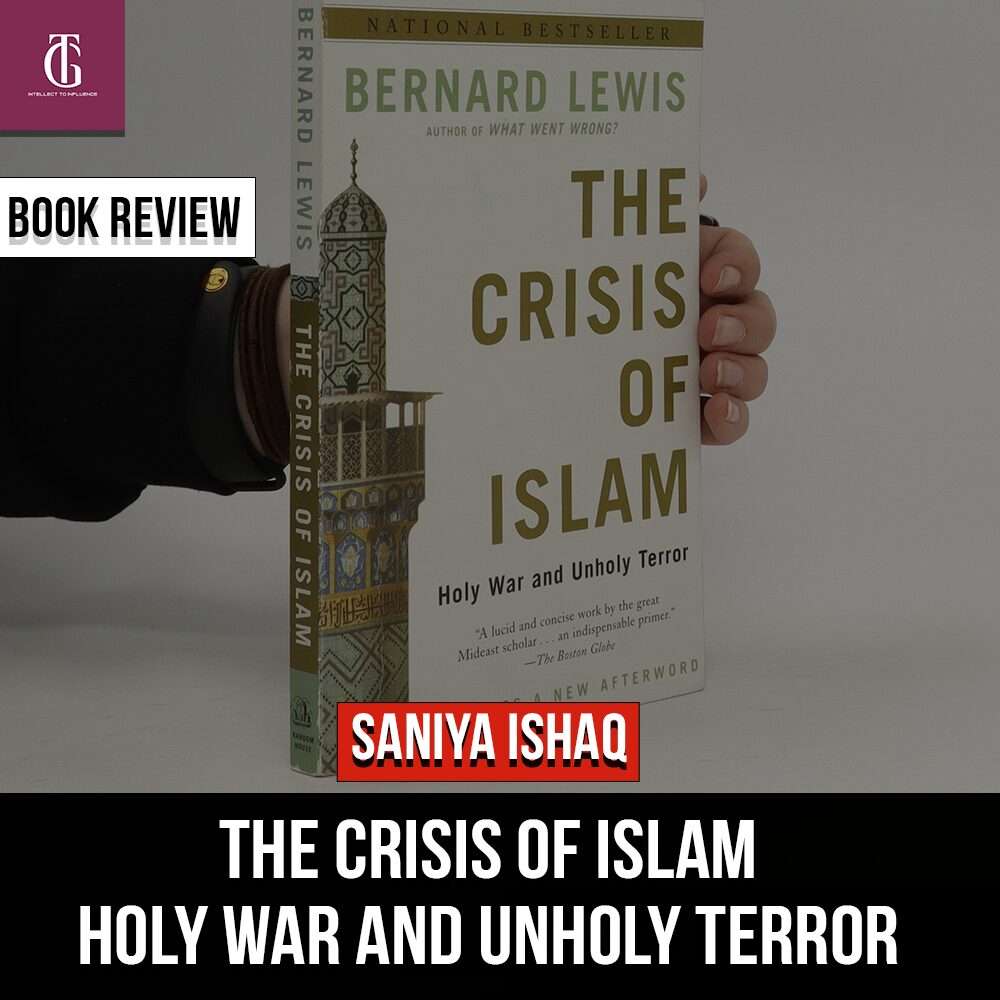
This book “The Crisis of Islam: Holy War and Unholy Terror” by Bernard Lewis is a controversial but significant evaluation of the political and historical foundations of Islamic violence. It was published in 2003 following the attack of 9/11, which make it more controversial, aims to get the better understanding of the emergence of militant Islam and its confrontational relationship with the West. This critical evaluation is an in-depth analysis of Lewis’s arguments, highlighting its benefits as well as its drawbacks in terms of depicting the complex fabric of the Muslim world.
Lewis provides readers with a rich historical framework as a renowned expert on Islamic history, detailing the development of the idea of jihad (war) across Islamic history. He determines the subtle differences between aggressive and defensive jihad, shedding light on the evolving understandings of jihad. This historical grounding serves as a crucial framework for comprehending the multifaceted nature of Islamic ideology. Additionally, the author points out the gap that exists between religious and political teachings of Islam, which aims to create Islamic governments based on particular readings of the Qur’an. To understand how extremists use religious beliefs and teachings as a tool to fulfil their political gains and objectives requires an understanding of this distinction. Lewis skilfully navigates readers through the complex landscape of Islamic politics and theology by clarifying this distinction.
The book also examines significant 20th-century events, such as the birth of Israel and the Iranian Revolution, emphasizing how crucial a role these events had in forming Muslim perspectives of the West. This approach describes the complicated roots of history that underlie the current conflicts between the West and the Muslim world. Author portrays a slightly biased picture of Islam by emphasizing conflict and bloodshed inside the religion, which might lead to the continuation of unfavourable perceptions about Muslims around the world. It is important to acknowledge that the vast majority of Muslims practice their faith peacefully, only a small sectors of the Muslim community do practice violent extremism. Therefore, a more balanced examination of different perspectives and peaceful expressions of Islam would be beneficial for the book.
Furthermore, some researchers argue that the book primarily examines the Muslim world through the prism of Western interests, ignoring socioeconomic factors and internal dynamics in Muslim-majority nations that support extremism. Although Lewis presents a convincing argument against extremist Islam, the book offers few suggestions for improving ties between the Muslim and Western communities. A more positive strategy would involve looking at opportunities for communication and cooperation. Additionally, Lewis’s emphasis on the “crisis of Islam” inadvertently reinforces negative stereotypes about Muslims. Violent extremism is a feature of many ideologies and religions, and they advise against linking it exclusively to Islam. Moreover, it has been suggested that the book’s release date, which coincided with the 9/11 attacks, exacerbated Islamophobia in the West.
Despite all this, the book makes an important addition to academic discourse. Its historical depth and study of political Islam provide priceless insights into the difficulties of the Muslim world. Nonetheless, readers must be aware of the book’s Western-centric inclined and inclination to focus excessively on conflict. When dealing with the issues that the Muslim world faces today, a broader understanding of Islam and a comprehensive examination of associated factors are required. Furthermore, it is critical to consider the book’s impact on academic discussions and public opinion, as well as the role of social media and globalization in forming modern Muslim identity. Moreover, encouraging interfaith discussion and spreading peaceful interpretations of Islam emerge as critical efforts to create peaceful coexistence.
In a nutshell, by critically evaluating “The Crisis of Islam” and considering different perspectives, we may gain a more complete knowledge of the multifaceted problems associated with Islam and violence. Such knowledge is critical for encouraging productive discourse and steering towards a more peaceful and inclusive future.
Saniya Ishaq
Saniya Ishaq, currently pursuing my MPHIL-IR from University of Punjab.





